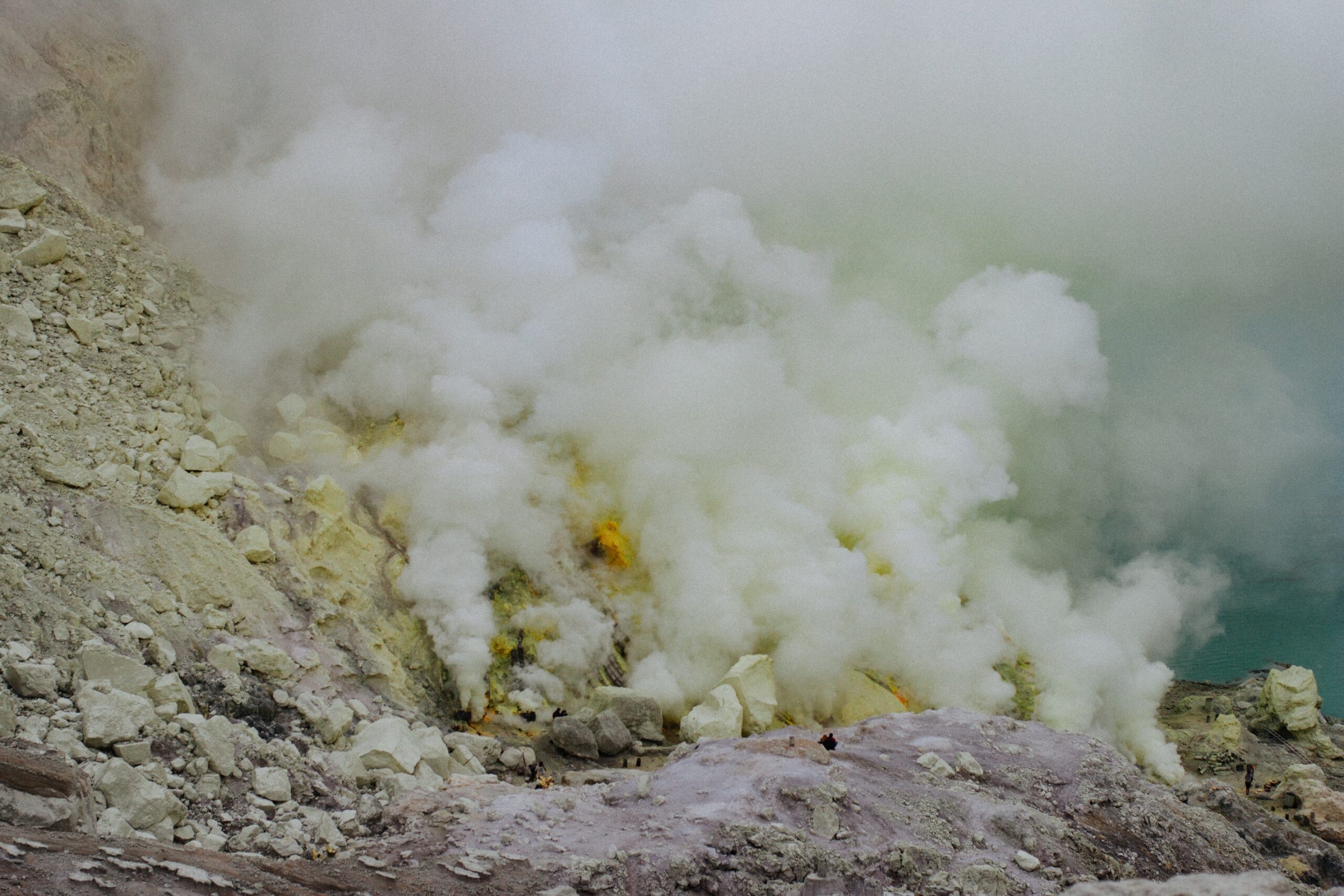If you’ve noticed an unpleasant odor or strange taste in your well water, particularly something reminiscent of sulfur, you may be eager to find a solution. Luckily, there are several approaches you can take to address these issues. Whether it’s installing a filtration system, shocking your well, or taking preventative measures, this article will guide you through the steps to achieve fresh and clean-tasting water from your well. So say goodbye to that unwanted sulfur smell and taste, and say hello to a refreshing and enjoyable drinking experience.

Understanding the Source of Sulfur Odor and Taste in Well Water
Sulfur odor and taste in well water can be unpleasant, but understanding its source is the first step in addressing the issue. There are various sources of sulfur in well water, including natural deposits, decaying organic matter, and the presence of sulfur-reducing bacteria. These factors can lead to the formation of hydrogen sulfide gas, which is responsible for the characteristic rotten egg smell and taste.
Chemical Reactions Causing Sulfur Odor and Taste
The presence of sulfur in well water is often a result of chemical reactions. Anaerobic conditions in the groundwater promote the growth of sulfur-reducing bacteria. These bacteria break down organic matter and produce hydrogen sulfide gas as a byproduct. Additionally, certain sulfates present in the water can undergo chemical reactions under specific conditions, forming hydrogen sulfide as well. These reactions contribute to the sulfur odor and taste experienced in well water.
Effects of Sulfur on Water Quality
Sulfur in well water not only affects the odor and taste but can also have an impact on water quality. In high concentrations, hydrogen sulfide gas can corrode plumbing systems and stain fixtures with black deposits. It can also give the water a cloudy appearance. Furthermore, sulfates present in the water can cause laxative effects if consumed in large quantities. Therefore, addressing sulfur issues in well water is essential for maintaining both aesthetic and health-related water quality.
Testing and Identifying Sulfur Odor and Taste in Well Water
To address sulfur odor and taste in well water, it is crucial to conduct a sulfur water test. This test can help determine the concentration of hydrogen sulfide gas and sulfates in the water. Testing kits are available, and they typically involve collecting a water sample and using reagents to perform the analysis. Interpreting the test results will allow you to understand the severity of the sulfur issue and select the appropriate treatment method.

Interpreting the Test Results
Interpreting the test results will provide insights into the sulfur levels in your well water. Hydrogen sulfide concentrations are usually measured in parts per million (ppm), with higher concentrations indicating a more pronounced sulfur odor and taste. Sulfate levels are measured in milligrams per liter (mg/L), and exceeding the recommended limits may also contribute to the sulfur-related issues. Understanding the test results will help you make informed decisions regarding the necessary treatments.
Differentiating Between Sulfur and Other Contaminants
It is essential to differentiate between sulfur odor and taste and other water contaminants. Sometimes, certain bacteria or organic compounds can produce similar smells and tastes. This is particularly important as different contaminants may require specific treatment methods. Consulting with a water testing professional or a reputable water treatment specialist can help accurately identify the specific cause of the odor and taste issues in your well water.
Common Solutions for Addressing Sulfur Odor and Taste
Several common solutions can be effective in addressing sulfur odor and taste in well water:
Shock Chlorination
Shock chlorination involves introducing chlorine in concentrated levels to the water system. This process helps disinfect the water and eliminate sulfur-reducing bacteria. It is usually performed by a professional following specific guidelines to ensure safety and effectiveness.
Aeration
Aeration, or the introduction of air, can effectively address sulfur issues in well water. By exposing the water to oxygen, hydrogen sulfide gas is converted into elemental sulfur, which does not cause an unpleasant odor or taste. Proper aeration systems, such as diffused aeration or packed tower aerators, can efficiently remove sulfur compounds from the water.
Greensand Filtration
Greensand filtration utilizes a specially formulated filter media known as greensand, which contains a natural mineral called glauconite. As water passes through the greensand filter, hydrogen sulfide reacts with the glauconite, removing the sulfur compounds and improving water quality. Periodic regeneration of the greensand filter is required to maintain its effectiveness.
Activated Carbon Filtration
Activated carbon filtration is a common method used to address sulfur odor and taste. The porous structure of activated carbon traps and absorbs sulfur compounds, leaving the water free from unwanted odors and flavors. Activated carbon filters need regular replacement to maintain their effectiveness and prevent bacterial growth.
Oxidizing Filters
Oxidizing filters, such as manganese greensand or catalytic carbon filters, can effectively address sulfur-related issues. These filters rely on oxidation to convert hydrogen sulfide gas into elemental sulfur, which is then captured by the filtering media. Periodic backwashing and maintenance are necessary to ensure the filters’ efficiency.
Preventive Measures to Reduce Sulfur Odor and Taste
Implementing preventive measures can help reduce the occurrence of sulfur odor and taste in well water. These measures include:
Regular Well Maintenance
Regular maintenance of the well system, including cleaning and disinfection, can prevent the growth of sulfur-reducing bacteria and the formation of hydrogen sulfide gas. It is advisable to follow the well maintenance recommendations provided by water professionals or well drilling contractors.
Avoiding Sulfur-Containing Fertilizers
Sulfur-containing fertilizers can introduce sulfates into the soil, which may eventually leach into the groundwater. By choosing alternative fertilizers or reducing the use of sulfur-containing products, you can minimize the potential for sulfur-related water issues.
Protecting Against Surface Water Contamination
Surface water can carry pollutants, including sulfur compounds, into your well. It is crucial to protect your well from potential contamination by ensuring proper well construction. Constructing the well casing above ground level and maintaining a proper distance from potential sources of contamination can help reduce the risk of sulfur odor and taste.
Proper Well Construction
Well construction plays a vital role in preventing sulfur odor and taste issues. Following construction guidelines, such as appropriate well depth and sealing techniques, can minimize the chance of sulfur-related problems. Seeking professional guidance during well construction can greatly contribute to preventing future issues.
Dos and Don’ts When Dealing with Sulfur Issues
Properly addressing sulfur odor and taste requires adhering to certain guidelines. Here are some important “dos” and “don’ts”:
Do’s of Addressing Sulfur Odor and Taste
- Do test your well water for sulfur and other contaminants regularly.
- Do consult with a water treatment specialist to accurately identify the cause of the odor and taste issues.
- Do consider preventive measures, such as regular well maintenance and avoiding sulfur-containing fertilizers.
- Do explore different treatment options based on the severity of the sulfur issue in your well water.
- Do follow the recommended maintenance and filter replacement schedules to ensure ongoing effectiveness of treatment systems.
Don’ts of Addressing Sulfur Odor and Taste
- Don’t ignore sulfur-related water issues, as they may worsen over time and affect water quality.
- Don’t rely solely on treatment methods without understanding the source and severity of the sulfur issue.
- Don’t attempt to address sulfur issues without proper knowledge or guidance, as it may lead to ineffective or unsafe treatments.
- Don’t neglect preventive measures, as they can significantly reduce the occurrence of sulfur odor and taste in well water.
Seeking Professional Help for Sulfur Issues
While some sulfur odor and taste issues can be resolved using common solutions, there are cases where professional assistance is necessary. Here are some situations where consulting a water treatment specialist is recommended:
When to Consult a Water Treatment Specialist
- If the sulfur odor and taste persist after implementing common solutions.
- If the well water test results indicate high sulfur levels that require specialized treatment.
- If the source of sulfur in the well water is difficult to determine.
- If the treatment options seem overwhelming or you require expert guidance on choosing the most suitable solution.
Finding Reputable Professionals
Finding reputable water treatment professionals is vital to ensure effective solutions and reliable services. Seek professionals with relevant experience in addressing sulfur issues in well water. Consider checking online reviews, requesting referrals from trusted sources, or contacting local water and health departments for recommendations.
Cost Considerations
The cost of addressing sulfur odor and taste in well water can vary depending on factors such as the severity of the issue, treatment method, and the involvement of professionals. It is recommended to obtain cost estimates from different professionals and consider the long-term benefits of investing in a reliable and sustainable solution.
Alternative Solutions for Sulfur Odor and Taste
In addition to the common solutions mentioned earlier, several alternative treatment methods can effectively address sulfur odor and taste:
Chemical Injection Systems
Chemical injection systems introduce specific oxidizing agents, such as chlorine dioxide or hydrogen peroxide, into the water to eliminate sulfur compounds. These systems require careful monitoring and control of chemical dosing to ensure optimal treatment.
Installing an Ozone Generator
Ozone generators produce ozone gas, which is a powerful oxidizer. By injecting ozone into the water, sulfur compounds are oxidized and removed. Ozone generators require professional installation and periodic maintenance.
Using Hydrogen Peroxide
Hydrogen peroxide is another oxidizing agent that can effectively eliminate sulfur odor and taste. It is often used in conjunction with other treatment methods or as part of a chemical injection system. Proper dosing and monitoring are essential when using hydrogen peroxide.
Ion Exchange
Ion exchange systems exchange sulfur ions in the water for non-sulfur ions, effectively removing the sulfur compounds. These systems require regular regeneration with salt or other regenerants to maintain their effectiveness. Professional installation and maintenance are recommended for ion exchange systems.
Considerations for Sulfur Filters and Treatment Systems
When selecting sulfur filters or treatment systems, it is important to consider the following factors:
Choosing the Right Size and Capacity
Ensure that the chosen filter or treatment system is appropriately sized and has the capacity to handle the water demand of your household. Undersized systems may not effectively treat the water, while oversized systems may lead to excessive costs and inefficiency.
Maintenance and Filter Replacement
All treatment systems require regular maintenance and, in the case of filters, periodic replacement. Consider the maintenance requirements, costs, and availability of replacement parts or media before selecting a treatment system. Adhering to the recommended maintenance schedules is crucial to ensure the continued effectiveness of the treatment system.
Comparing Different Treatment Methods
Each treatment method has its advantages, disadvantages, and suitability based on the specific sulfur issue and water quality. It is advisable to compare different treatment methods, seek professional advice, and consider long-term costs and benefits before making a decision. Professional water treatment specialists can help determine the most suitable treatment method for your specific needs.
Potential Health Effects of Sulfur in Well Water
While sulfur odor and taste in well water are primarily aesthetic concerns, high levels of sulfur can have potential health effects. These health risks are generally associated with the consumption of sulfates, which can be present in well water with elevated sulfur levels. Some potential health effects include gastrointestinal issues, such as diarrhea and dehydration, particularly in individuals with underlying health conditions. It is important to address sulfur issues in well water to ensure the continued safety of your water supply.
Regulatory Guidelines and Standards for Sulfur Levels
There are national and international drinking water standards that provide guidelines for acceptable sulfur levels in well water. These standards ensure the safety and quality of drinking water. For example, the Environmental Protection Agency (EPA) in the United States has set a secondary maximum contaminant level (SMCL) of 0.05 mg/L for sulfur in drinking water. It is important to be aware of local regulations and recommendations specific to your region or country as they may differ from these standards.
In conclusion, addressing sulfur odor and taste in well water requires an understanding of its source, conducting water tests, and selecting the appropriate treatment methods. By implementing preventive measures, seeking professional help when needed, and considering alternative solutions, you can effectively address sulfur-related water issues. Remember to adhere to dos and don’ts, consider the potential health effects, and be aware of regulatory guidelines to ensure the safety and quality of your well water.


